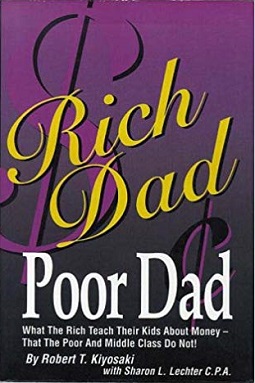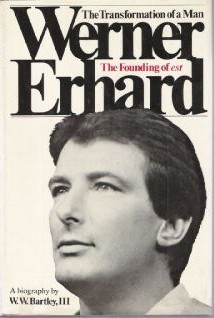A plutocracy or plutarchy is a society that is ruled or controlled by people of great wealth or income. The first known use of the term in English dates from 1631. Unlike most political systems, plutocracy is not rooted in any established political philosophy.

In sociology and in economics, the term conspicuous consumption describes and explains the consumer practice of buying and using goods of a higher quality, price, or in greater quantity than practical. In 1899, the sociologist Thorstein Veblen coined the term conspicuous consumption to explain the spending of money on and the acquiring of luxury commodities specifically as a public display of economic power—the income and the accumulated wealth—of the buyer. To the conspicuous consumer, the public display of discretionary income is an economic means of either attaining or of maintaining a given social status.
Wealth is the abundance of valuable financial assets or physical possessions which can be converted into a form that can be used for transactions. This includes the core meaning as held in the originating Old English word weal, which is from an Indo-European word stem. The modern concept of wealth is of significance in all areas of economics, and clearly so for growth economics and development economics, yet the meaning of wealth is context-dependent. A person possessing a substantial net worth is known as wealthy. Net worth is defined as the current value of one's assets less liabilities.

Robert Toru Kiyosaki is an American businessman and author, known for the Rich Dad Poor Dad series of personal finance books. He is the founder of the Rich Dad Company, a private financial education company that provides personal finance and business education to people through books and videos, and Rich Global LLC, which filed for bankruptcy in 2012.

Rich Dad Poor Dad is a 1997 book written by Robert T. Kiyosaki and Sharon Lechter. It advocates the importance of financial literacy, financial independence and building wealth through investing in assets, real estate investing, starting and owning businesses, as well as increasing one's financial intelligence.

The Ghost in the Machine is a 1967 book about philosophical psychology by Arthur Koestler. The title is a phrase coined by the Oxford philosopher Gilbert Ryle to describe the Cartesian dualist account of the mind–body relationship. Koestler shares with Ryle the view that the mind of a person is not an independent non-material entity, temporarily inhabiting and governing the body. The work attempts to explain humanity's self-destructive tendency in terms of individual and collective functioning, philosophy, and overarching, cyclical political–historical dynamics, peaking in the nuclear weapons arena.

The Millionaire Next Door: The Surprising Secrets of America's Wealthy (ISBN 0-671-01520-6) is a 1996 book by Thomas J. Stanley and William D. Danko. The book is a compilation of research done by the two authors in the profiles of American millionaires.

The Secret is a 2006 Australian-American spirituality documentary consisting of a series of interviews designed to demonstrate the New Thought "law of attraction", the belief that everything/one wants or needs can be satisfied by believing in an outcome, repeatedly thinking about it, and maintaining positive emotional states to "attract" the desired outcome.
The law of attraction is the New Thought spiritual belief that positive or negative thoughts bring positive or negative experiences into a person's life. The belief is based on the idea that people and their thoughts are made from "pure energy" and that like energy can attract like energy, thereby allowing people to improve their health, wealth, or personal relationships. There is no empirical scientific evidence supporting the law of attraction, and it is widely considered to be pseudoscience or religion couched in scientific language. This belief has alternative names that have varied in popularity over time, including manifestation and lucky girl syndrome.
The Science of Getting Rich is a book written by the New Thought Movement writer Wallace D. Wattles and published in 1910 by the Elizabeth Towne Company. The book is still in print. According to USA Today, the text is "divided into 17 short, straight-to-the-point chapters that explain how to overcome mental barriers, and how creation, rather than competition, is the hidden key to wealth attraction."

Werner Erhard: The Transformation of a Man, The Founding of est is a biography of Werner Erhard by philosophy professor William Warren Bartley, III. The book was published in 1978 by Clarkson Potter. Bartley was a graduate of Erhard Seminars Training and served on its advisory board. Erhard wrote a foreword to the book. The book's structure describes Erhard's education, transformation, reconnection with his family, and the theories of the est training.
Bob Circosta is an American businessman and TV host. He is television's first-ever home-shopping host and has achieved over $1 billion in personal product sales on live television. His offices are in Clearwater, Florida, just a few miles from the Home Shopping Network (HSN)'s corporate building.

Marshall Sylver is an American motivational speaker, author, and performance hypnotist who works primarily in Las Vegas, Nevada. He has billed himself as "The World's Fastest Hypnotist".

Emanuel James Rohn, professionally known as Jim Rohn, was an American entrepreneur, author, and motivational speaker. He wrote numerous books including How to obtain wealth and happiness.
Catherine Ponder is an American minister and founder of Unity Church Worldwide, affiliated with the Unity Church, and author of several New Thought books on mainly focused on the theme of prosperity.
Christopher Hurn is an American writer, entrepreneur, and business executive who works primarily in the field of small business lending. He is the founder and CEO of Fountainhead, a company that provides commercial real estate financing and growth capital for small business owners. He previously founded Mercantile Capital Corporation, a financier of owner-occupied commercial real estate and an Inc. 500 company. He served as CEO of that company prior to leaving in late 2014 to launch Fountainhead.

Creative visualization is a term used by New Age, popular psychology, and self-help writers and teachers in two contexts.

Why We Want You to Be Rich: Two Men, One Message is a non-fiction book about personal finance, co-authored by Donald Trump and Robert Kiyosaki. The book was first published in hardcover format in 2006. The coauthors became familiar with each other through mutual work at The Learning Annex and Trump being impressed by Kiyosaki's writing success with Rich Dad Poor Dad. Trump and Kiyosaki co-authored another book together in 2011, Midas Touch: Why Some Entrepreneurs Get Rich-And Why Most Don't. The book discusses American economic problems including the middle-class squeeze, economic globalization, and the national debt of the United States. The authors advise the reader to gain financial literacy and delve into entrepreneurship. Trump and Kiyosaki criticize mutual funds and advocate real estate investing as a way to build wealth.

Joseph Vitale is an American spiritual teacher best known for his appearance in the movie, The Secret, and as the author of The Attractor Factor. He currently resides in Austin, Texas.












